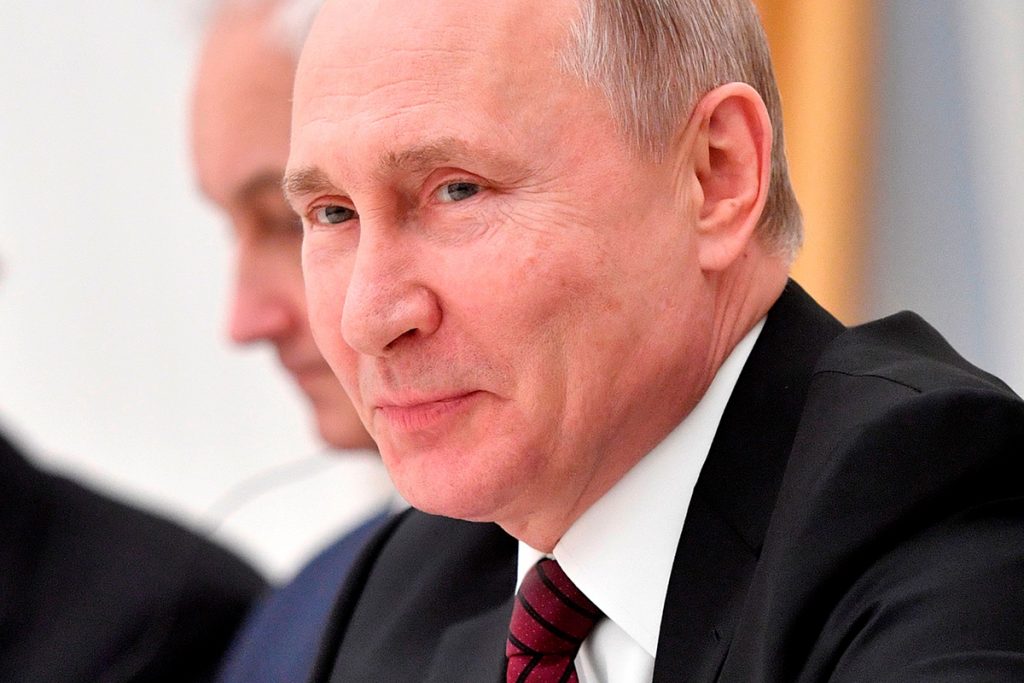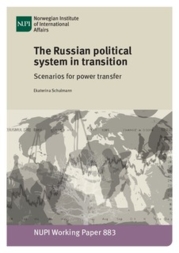(THIS ARTICLE IS MACHINE TRANSLATED by Google from Norwegian)
The main reason for Vladimir Putin's popularity is that he is not Boris Yeltsin. Under Yeltsin's rule in the 1990 years of Russia, the average life expectancy of men fell by seven years, gross national product fell by 40 percent, the state's monopoly of power disintegrated in favor of the mafia and oligarchs, and citizens lost their national pride and ideological affiliation. "Disregarding major famines, plague and war, so many have never lost so much in such a short time," writes Naomi Klein in The shock doctrine.
humiliation
While visiting a Russian village in 2008, I was told a story about the local workers during the 1990 years. The cornerstone business was a toilet paper factory. For long periods, the workers were not paid wages, but instead received payments in the form of toilet rolls, which they had to line up along the road and try to sell to passers-by in their spare time. What a humiliation to the workers who had recently been inhabitants of the world's second most powerful superpower!
Putin's solution to these problems was to streamline the hierarchy of power under the presidential power, what he called "the vertical of power." In the NUPI report The Russian Political System in Transition: Scenarios for Power Transfer Ekaterina Schulmann writes that the enormous social inequalities continued, but that the state took greater control of the oil and gas industry and demanded political loyalty from the previously so independent oligarchs. She points out that wages and life expectancy increased for most people, and that national pride was restored through the cultivation of Russia's history and a more assertive foreign policy.

What happens when Putin retires and the Russian bear loses his head?
Still: Now it seems that what made Putin's system work for a while comes back and bites him in the tail. Affected by falling oil prices and Western sanctions, he chose to raise his retirement age by five years, a decision that was very unpopular. More importantly, Putin's Russia is built on a hierarchy of power where the president's personal authority is what ultimately keeps warring elite factions in check, upholds people's loyalty and makes the system work. What will happen on the day Putin himself retires and the Russian bear loses his head?
power vacuum
In the NUPI report, Schulmann makes an analysis of how the Russian elite is preparing for a change of power when Putin finishes his current presidential term in 2024. According to Schulmann, when the elite is terrified of losing Putin, there are three factors: The elite trust that it safeguards Russia's interests abroad, and through his personal popularity domestically, he helps legitimize the other institutions of power – either unknown to or disliked by population. Last but not least, it is Putin's role at the top of the hierarchy that helps deal with the constantly hidden power struggle between various elites and institutions so that none of them attains complete power over the others. Removing the regulatory body at the top would mean that the hidden power struggle could be replaced by open struggle – and either greater concentration of power by a smaller part of the elite, or chaos.
An added problem for the elite is that their legitimacy is dwindling among ordinary people.
One possible solution is to remove the constraints of the constitution which states that a president can only sit for two consecutive periods. However, Schulmann believes that it will run counter to the conservative Russian leadership's attempt to give the system a legitimate superstructure by formally following the constitutional, democratic constraints. In addition, I believe, the Russian leadership is historically conscious enough not to want to end up in the situation that characterized the Soviet Union at the beginning of the 1980 years: that the head of state after the head of state sat all the way to the dead of old age. It was an embarrassing sight and sign of weakness with the quickly succeeding Leonid Breshnev (death 1982), Jurij Andropov (death 1984) and Konstantin Chernenko (death 1985).
An added problem for the elite is that their legitimacy is dwindling among ordinary people. The economic stagnation and raising of the retirement age has led to an ever-growing backing of the ruling United Russia Party. Unfortunately, the popular dissatisfaction seems to be more pronounced in apathy than in commitment – at least for so long.
Schulmann concludes that the most natural post-Putin solution is to extend power to one or more existing institutions so as to gain some form of collective leadership. It would undoubtedly be the wisest, if the aim is to maintain stability. This was attempted in the Soviet Union after its former leaders Vladimir Lenin and Josef Stalin died in his post. However, it was not long before the collective leadership collapsed in internal power struggles that led to Stalin and Nikita Khrushchev respectively consolidating power in their own hands.
divisions
In an article in The Moscow Times 22. February 2019 writes Tatiana Stanovaja about how the discussion about what will happen after 2024 has already led to serious divisions among the Russian elite. According to Stanovaja, there have been harsh anonymous attacks on Putin's press spokesman Dmitry Peskov, which can be traced back to other parts of the Russian administration. The attacks are interpreted as a "punishment" for Peskov's failure to comment on the guilt issue in the case of Rauf Arasjukov. Arashukov was arrested in the middle of a parliamentary session in January, accused of a political murder committed in 2010. This happened in parallel with Arashukov's father, Raul, being arrested on suspicion of embezzlement by the gas company he administered. Stanovaja interprets the attacks on Peskov as part of an internal power struggle to remove anyone who might be defending the Arasjukov family's role in the power pyramid.
Stanovaja cites a number of other examples of the fact that the power vertical is about to fall apart – and is replaced by an open power struggle – that it is difficult for a foreigner to consider. But the situation is obviously serious enough that Presidential Adviser and ideologue Vladislav Surkov took the time to write a longer article in the Nezavisimaya Gazeta 2. February where he assures that "Putinism is the ideology of the future" and that Putin's state system will last – not just for years, but for decades, probably for the rest of the century. These reassurances should be enough to make anyone nervous. As Blessed Bertolt Brecht said: "When politicians talk about peace, ordinary people know that war is coming."






